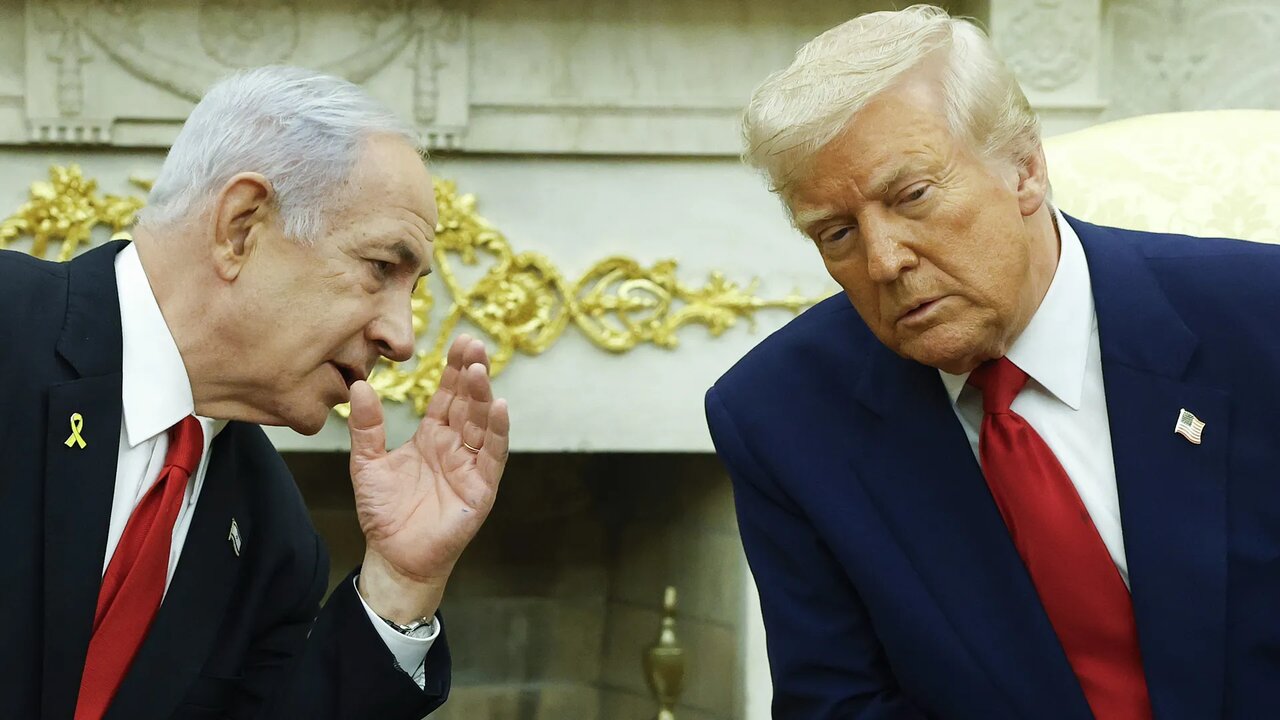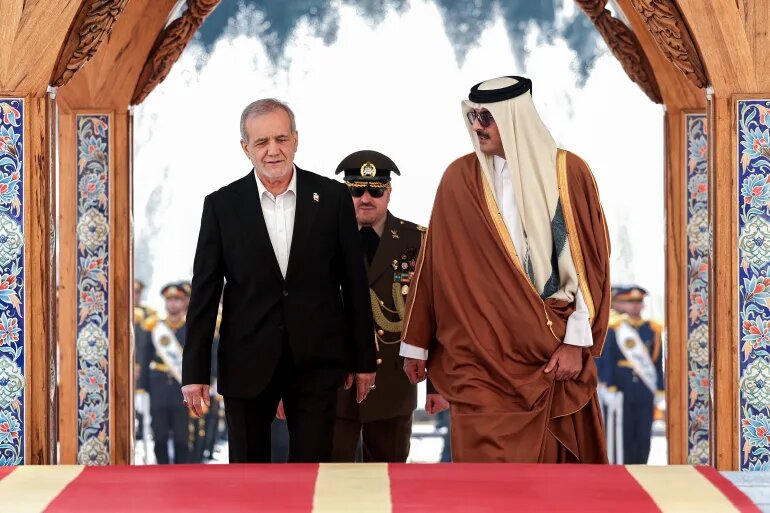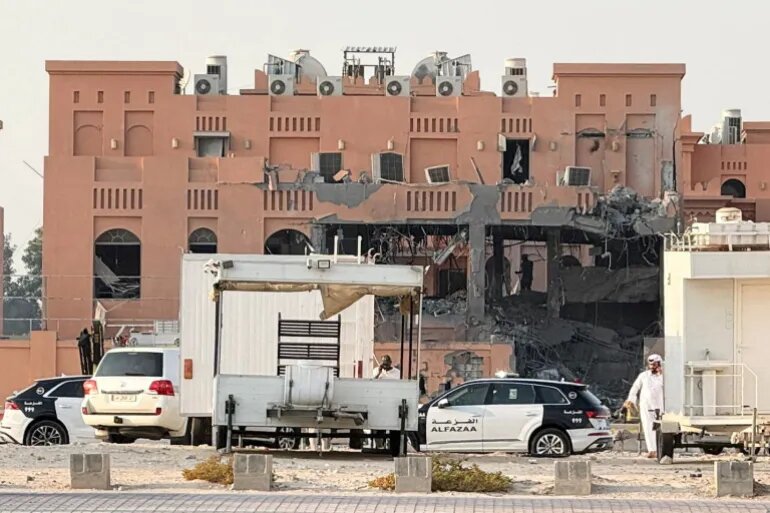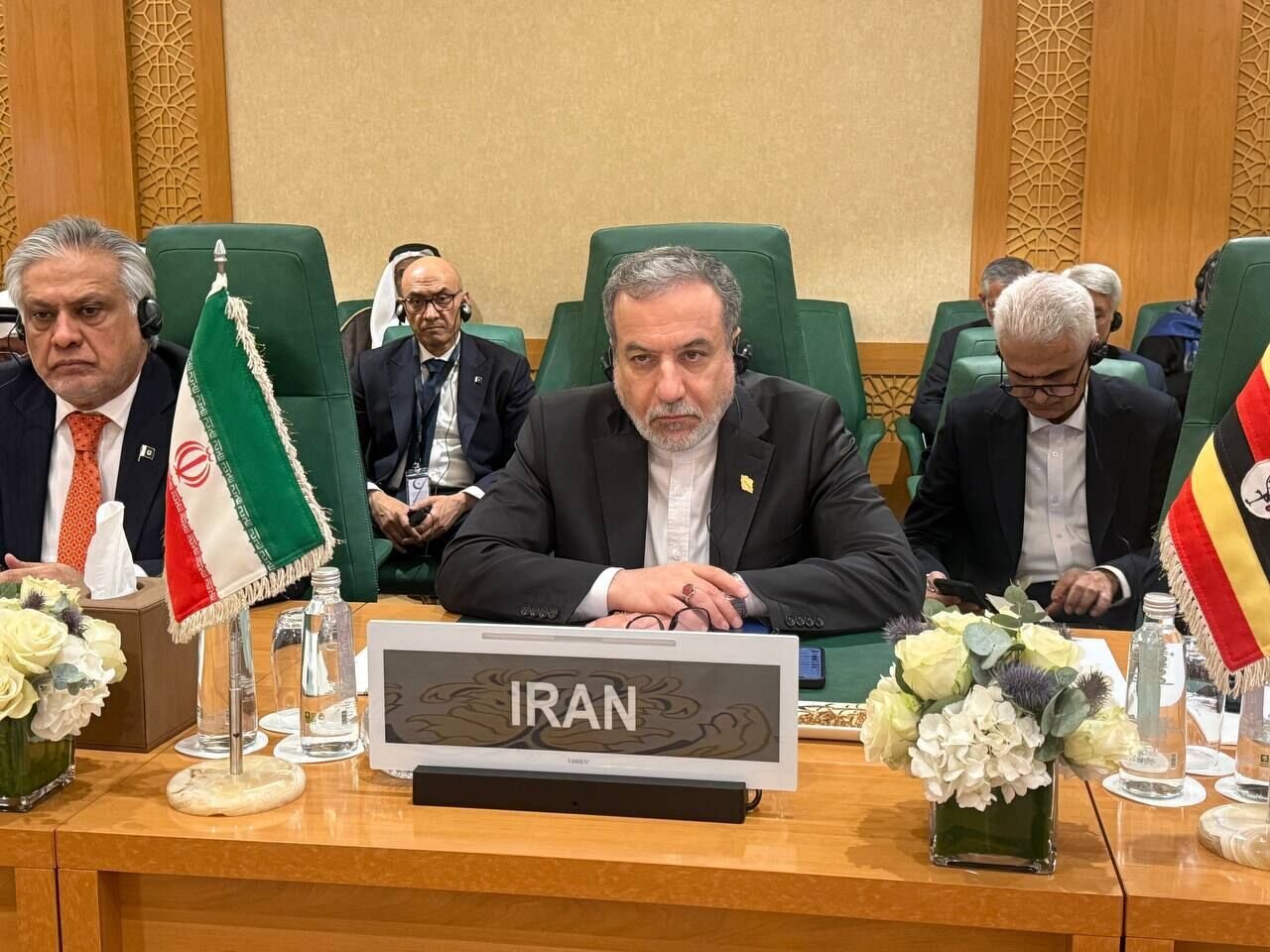Trump’s trap: Fueling Israel’s Qatar attack and advancing 'Greater Israel' vision

TEHRAN – International condemnation is mounting following a deadly Israeli airstrike on a residential area in Qatar’s capital, Doha.
On Tuesday, Israel targeted what it described as senior Hamas leaders, including key negotiators involved in ceasefire talks aimed at ending the war in Gaza. While Hamas confirmed that senior leaders survived, five lower-ranked members were killed.
The Qatari Foreign Ministry condemned the strike in the “strongest terms,” labeling it a “cowardly Israeli attack” and a blatant violation of international laws and norms. The assault also claimed the life of a Qatari security official, further escalating tensions.
Qatar’s Emir Sheikh Tamim bin Hamad Al Thani denounced the strike as a “reckless, criminal” act and a “flagrant violation” of Qatar’s sovereignty and international law principles.
The Israeli strike in Qatar has drawn swift global condemnation. Iran, along with many countries across West Asia and worldwide, denounced the air raid.
‘Heinous’ attack: Iran urges Islamic unity

In a phone call with Qatar’s Emir, President Masoud Pezeshkian affirmed Iran's solidarity with Qatar and strongly condemned the Israeli attack. He also emphasized that Islamic countries should "seriously and effectively condemn the blatant crimes of the Zionist regime both in words and actions."
Foreign Minister Abbas Araghchi also condemned the Israeli "heinous" attack. In a post on X, the top Iranian diplomat said, "The only way to decisively address the recklessness of the Israeli regime is for the Muslim world to act in unison."
Israel’s Western allies, including the UK, France, and Germany, also expressed disapproval. United Nations Secretary-General António Guterres described the air raids as a “flagrant violation” of Qatar’s sovereignty.
Despite the U.S. administration’s claim that it had notified Qatari officials prior to the strike—a claim firmly rejected by Doha—this incident marks Israel’s first attack in Qatar, a country pivotal in mediating ceasefire talks and home to the region’s largest U.S. military base, Al Udeid Air Base.
The attack coincided with a meeting of negotiators discussing the latest U.S.-proposed ceasefire plan in Doha, underlining a direct challenge to diplomatic efforts aimed at ending the Gaza conflict. The proposal, however, appeared to be a ploy to provide Israel with an opportunity to target Hamas officials under the guise of diplomacy.
Targeted assassinations and regional escalation

A damaged building, following an Israeli attack in Doha, Qatar, September 9, 2025 [Ibraheem Abu Mustafa/ Reuters]
Israel’s strike on Qatar comes amid a broader military campaign against Hamas, which has included the targeted assassination of numerous top Hamas military and political figures since October 2023. Key leaders such as Yahya Sinwar, Mohammed Deif, and Ismail Haniyeh have been killed in various locations. Israel assassinated Haniyeh in Iran’s capital Tehran.
Beyond Gaza, Israel has expanded its military operations to Lebanon, Yemen, Syria, and the occupied West Bank, intensifying regional instability. On June 13, Israel launched unprovoked strikes on Iranian territory, targeting high-ranking military commanders, nuclear scientists, and civilians alike. The United States later joined Israel’s war on Iran by targeting three of Iran’s nuclear facilities.
In retaliation, Iran launched missile strikes on strategic Israeli cities including Tel Aviv and Haifa, and notably targeted the Al Udeid air base in Qatar. These coordinated operations effectively halted Israeli and U.S. military aggression by June 24, demonstrating Iran’s formidable missile capabilities and signaling a significant shift in regional power dynamics.
Prior to these escalations, Iran and the United States had conducted five rounds of indirect talks regarding Tehran’s nuclear program. A sixth round, scheduled for June 15 in Muscat, Oman, was abruptly canceled due to Israeli attacks on Iran.
While these negotiations were publicly presented as sincere efforts by Iran to resolve tensions diplomatically, the timing and subsequent attacks reveal a deeper strategy. The talks were used as a deliberate trap by the Trump administration to create a false sense of security, enabling Israel to prepare and carry out surprise attacks with U.S. support or coordination. This strategy effectively weaponized diplomatic channels to justify military aggression, undermining trust and escalating conflict instead of fostering peace.
Expansionist ambitions behind the Qatar strike
Israel’s strike on Qatar reveals deeper political and strategic calculations. Despite attempts made by President Donald Trump's administration to distance itself from the attack, evidence points to intelligence coordination between Israeli forces and U.S. Central Command (CENTCOM), including cooperation with U.S.-controlled air defense systems.
Israel’s failure to decisively defeat Hamas militarily after nearly two years of conflict—resulting in over 64,000 Palestinian deaths—has pressured Prime Minister Benjamin Netanyahu to escalate hostilities. The attack on Qatar appears aimed at diverting attention from Israel’s security vulnerabilities and military setbacks, particularly after Monday’s deadly shooting attack in Jerusalem (al-Quds).
Netanyahu’s political survival is also at stake. His hardline coalition ministers have threatened to abandon the government if a ceasefire deal with Hamas is reached, and ongoing corruption charges against him make prolonging the war a tool to maintain power and distract from legal challenges.
This attack on Qatar also underscores Israel’s dangerous regional vision, commonly referred to as “Greater Israel.” Netanyahu has recently publicly supported this expansionist agenda, which seeks to extend Israeli borders—potentially encompassing parts of Jordan, Lebanon, Egypt, Syria, Iraq, and Saudi Arabia.
Araghchi’s warning on ‘Greater Israel’

Iran's Foreign Minister Abbas Araghchi attended the Extraordinary Meeting of the OIC Council of Foreign Ministers in Jeddah, Saudi Arabia, August 25, 2025.
The Iranian foreign minister recently sounded a clear warning about these ambitions in an article titled “The Illusion of ‘Greater Israel’ Is an Existential Threat and a Danger to International Peace and Security,” published by Asharq al-Awsat, a leading pan-Arab newspaper known for its wide regional readership and influential opinion pieces. Araghchi’s article came ahead of his attendance at the Organization of Islamic Cooperation (OIC) meeting in Saudi Arabia late last month. In his article, Araghchi exposed Israel’s “insatiable expansionist ambitions” and described the ongoing ethnic cleansing and genocide in Gaza as part of a broader campaign threatening regional stability. He cautioned that Israel’s attacks on Lebanon, Syria, Yemen, and Iran itself are steps toward realizing a dangerously expansive vision that could soon target other neighboring countries.
In a recent article published in Asharq al-Awsat ahead of the OIC meeting in Saudi Arabia, Iran’s FM Abbas Araghchi warned that Israel’s ‘insatiable expansionist ambitions’ could soon threaten other regional states.Araghchi’s detailed analysis in Asharq al-Awsat underscored the urgency of regional unity and resistance against Israel’s expansionist agenda. His views align with the broader concerns expressed by many governments and analysts who see Israel’s actions not as isolated military operations but as components of a larger geopolitical strategy.
The assault on Qatar confirms Araghchi’s warnings and reveals the true nature of Israel’s regional ambitions. To prevent further destabilization and potential wider conflict, it is imperative that regional countries unite firmly in opposition to Israel’s aggressive policies. Only through coordinated political, diplomatic, and strategic efforts can the region safeguard its sovereignty and security.
Israel’s unprovoked attacks on sovereign nations, its blatant disregard for international law, and its relentless pursuit of territorial expansion demonstrate a reckless contempt for peace and stability in the Middle East. Its willingness to strike even the homes of diplomatic mediators and attack nations hosting U.S. military bases exposes a level of impunity that threatens not only regional but global security. Unless Israel’s aggressive policies are decisively confronted and contained, the region faces escalating violence and enduring instability. Unity among Middle Eastern nations against this existential threat is not just necessary—it is urgent and non-negotiable.
Leave a Comment